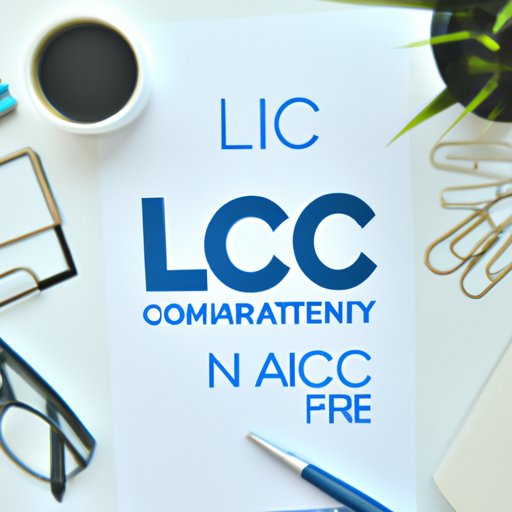How to Start an LLC: A Step-by-Step Guide
Starting a business can be both exciting and overwhelming. An LLC, or Limited Liability Company, is a popular business structure that offers numerous benefits. LLCs provide flexibility, personal protection, and tax advantages, making them an ideal choice for many entrepreneurs.
In this article, we will provide you with a comprehensive guide on how to start an LLC. From meeting legal requirements to drafting an operating agreement, we will cover everything you need to know to get your LLC up and running.
Step-by-Step Guide
Research the legal requirements
Starting an LLC requires complying with legal requirements set by the state in which you’ll be doing business. The laws vary by state, so it is crucial to research and familiarize yourself with the requirements in your state. Contact your state’s business registration agency or visit their website to learn more about what’s required.
Choose a name
The next step is to choose a name for your LLC. This name must be unique and distinguishable from other registered businesses in your state. Don’t forget to check for availability before settling on a name – you’ll want to ensure your chosen name is free to use.
Identify a registered agent
A registered agent is responsible for receiving legal and official documents on behalf of the LLC. The registered agent can be an individual or a registered business entity. Choose someone reliable, responsible, and available to act as your registered agent. You can also hire a registered agent service to handle this for you.
Draft an operating agreement
An operating agreement outlines how your LLC will operate and the responsibilities of each member. It serves as a guide for how your LLC will function, which is essential in avoiding legal conflicts and establishing clear expectations. Hire an attorney to create an operating agreement or use an online service.
Submit articles of organization
Articles of Organization create your LLC and inform the state of your intent to form an LLC. This document includes basic information about your LLC, such as the name, the registered agent, and the operating agreement. You will need to file this document with your state’s registration agency and pay a filing fee.
Obtain necessary licenses and permits
Depending on your business’s location and type, you may need to obtain additional licenses or permits. Research your state and local regulations to ensure that you stay compliant with regulations in your industry.
Provide additional tips and resources
Starting an LLC requires more than following legal requirements. Small business owners should consider consulting with a lawyer, accountant, or business mentor to understand their options fully. Be sure to create a solid business plan, open a business bank account, and obtain business insurance as well.
Personal Experience
Starting an LLC can be challenging but rewarding. When I started my LLC, I faced numerous obstacles, but with careful planning, research, and the guidance of legal and financial experts, I was able to overcome them. Stressing the importance of patience and perseverance to anyone considering starting their own LLC.
Comparison of LLC vs Other Business Structures
LLCs offer unique benefits that make them an attractive option for small business owners. Compared to other business structures like sole proprietorships or partnerships, LLCs provide personal asset protection, limited liability, and tax flexibility. It is essential to consider other business structures to choose the one that best aligns with your business goals.
Specialized Articles
LLCs are not one-size-fits-all, and different industries have different needs. Specialized articles tailored to a specific industry, such as healthcare or entertainment, can highlight industry-specific considerations to keep in mind when starting your LLC.
Importance of a Business Plan
A business plan provides a roadmap for your business’s success. It helps you identify your target customers, set goals, and establish a realistic timeline for achieving them. Your business plan also guides you in making informed decisions and can be a useful tool to track your progress.
Legalities and Compliance
While starting an LLC can be exciting, it is essential to stay compliant with all regulations. State and local laws require LLCs to file taxes and obtain certain permits and licenses. Failing to comply can lead to fines or even legal action. It is crucial to research your legal and tax obligations and ensure compliance from the start.
Conclusion
Starting an LLC can be challenging, but with careful planning, research, and determination, it can be a rewarding journey. Follow the steps outlined in this guide, get legal and financial advice, and create a solid business plan to get your LLC off to a successful start.
